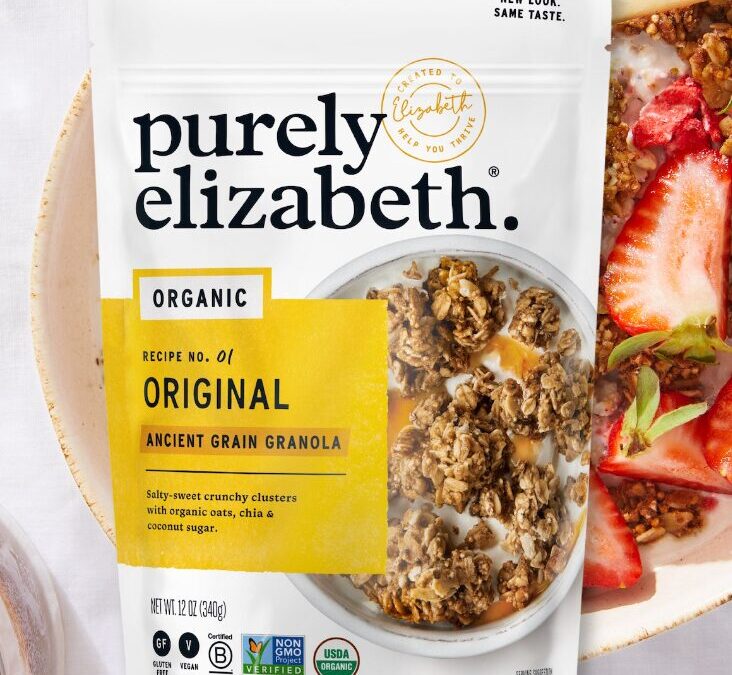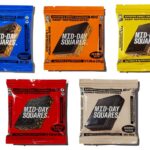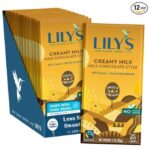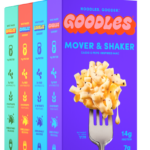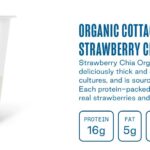Elizabeth Stein’s Journey from Nutrition Counselor to Granola Guru
When Elizabeth Stein walked into her first natural foods trade show in 2009 with homemade granola samples packed in her suitcase, she had no idea she was launching what would become a multi-million-dollar natural foods company.
But that’s precisely what happened with Pure Elizabeth, a brand that has revolutionized the breakfast aisle by focusing on nutrient-dense ancient grains and superfood ingredients.
The Founder’s Journey – Grain Expectations

Elizabeth’s story doesn’t begin in food manufacturing or even culinary arts. After graduating from college, she worked in the fast-paced world of New York City real estate. But something wasn’t clicking. “I wasn’t passionate about what I was doing,” she said in interviews. This disconnect made her explore her interests: nutrition, wellness, and helping others live healthier lives.
In 2008, she made a bold career pivot, enrolling in a holistic nutrition counseling program at the Institute for Integrative Nutrition. This decision would change her career trajectory and the breakfast tables of health-conscious Americans nationwide.
While studying nutrition, Elizabeth became fascinated with nutrient-dense ancient grains like quinoa, amaranth, and chia seeds – ingredients that were hardly mainstream at the time. She began experimenting in her kitchen, creating nutritious and delicious recipes, avoiding the cardboard-like taste that plagued many “healthy” options back then.
From Kitchen to Farmers Markets
The first purely Elizabeth products weren’t created for retail shelves but for Elizabeth’s nutrition clients. She wanted to give them easy access to truly healthy breakfast options that tasted good.
Her original products were muffin mixes made with superfoods. One day, while her mom was in town, she was cooking up a batch of granola, and her mom told her, ” This should be your next product.”
Her homemade granola, packed with organic oats, seeds, and natural sweeteners like coconut sugar, became an instant hit.
This positive feedback encouraged Elizabeth to sell her granola at local farmers’ markets in 2009. She’d bake batches in her home kitchen each weekend, pack them by hand, and set up her modest stand. The direct customer interaction proved invaluable – she got immediate feedback and built a loyal following one sample at a time.
“I was working seven days a week,” Elizabeth has recalled. “Weekdays counseling nutrition clients, nights and weekends baking and selling at markets. It was exhausting but exhilarating because I knew I was onto something.”
Taking the Leap: From Side Hustle to Full-Time Business
The turning point came when Elizabeth decided to exhibit at Natural Products Expo East, a significant trade show for natural food brands. With no formal business background and limited resources, she packed homemade samples in her suitcase and created simple marketing materials. Her booth was tiny compared to established brands, but her passion and unique product stood out.
She connected with a small regional distributor at the show who believed in her vision. This partnership allowed Pure Elizabeth to expand beyond farmers’ markets into local health food stores in the Northeast. The brand’s growth was organic; methodically, Elizabeth reinvested every dollar of profit into the business.
Elizabeth’s mom went into a local Whole Foods and spoke to their forager (buyer of local goods), who agreed to give her a shot. That leads to more stores in the northeast and eventually national distribution.
She remained a one-woman show for years, handling everything from product development and marketing to sales calls and demos. Because she couldn’t afford traditional advertising, she relied on grassroots marketing, in-store sampling, and word-of-mouth.
Navigating Growing Pains
As orders increased, Elizabeth’s home kitchen couldn’t meet demand. Finding a contract manufacturer (a company that produces food according to another company’s specifications) was her next challenge. Many wouldn’t work with her because her minimum orders were too small, and those who would charge premium prices.
Then came the challenge of scaling recipes. What works in a home kitchen doesn’t always translate perfectly to commercial production. Elizabeth spent countless hours at manufacturing facilities, ensuring her products maintained their premium quality and taste.
By 2013, purely Elizabeth had expanded to hundreds of stores, but Elizabeth faced a critical decision: remain small and regional or seek investment to grow nationally. Unlike many entrepreneurs who chase rapid expansion and venture capital, Elizabeth chose a measured approach, partnering with an angel investor who shared her values and vision.
Breaking Into the Mainstream
The granola and breakfast cereal category in the United States is dominated by food giants, with annual sales exceeding $11 billion. When purely Elizabeth entered the scene, “healthy” granola typically meant “low-fat” – often compensating with high sugar content. The category was ripe for disruption.
Elizabeth positioned her brand as a healthier alternative and a premium lifestyle brand. While conventional granolas were priced at $3-4 per bag, Elizabeth commanded $6-7, placing it firmly in the premium segment. This pricing strategy communicated quality and allowed for sustainable growth.
By 2016, Purely Elizabeth had achieved national distribution in natural chains like Whole Foods and was beginning to break into conventional grocery stores. The brand’s timing was perfect—consumer research showed that 73% of Americans considered ancient grains healthy, up from just 22% five years earlier.
Expansion and Evolution
With proof of concept established in granola, Elizabeth expanded the product line to include oatmeal cups, grain-free granolas, and probiotic-enhanced muesli. Each new product maintained the brand’s core values of nutritional density, clean ingredients, and great taste.
In 2017, Elizabeth made another strategic decision, accepting investment from 301 Inc., General Mills’ venture capital arm. Unlike a complete acquisition, this partnership provided capital for expansion while allowing Elizabeth to maintain control of the company.
Today, Pure Elizabeth products are available in over 15,000 stores nationwide, and the brand continues to innovate with functional food products incorporating adaptogens, probiotics, and other wellness-focused ingredients. Annual revenue is difficult to determine because the company is privately held. However, I have seen estimates in articles ranging from $50 to $200 million—quite a journey from homemade granola to farmers’ markets! On The Today Show, she said she has sold over 100 million bags of granola.
Key Marketing Insights from Purely Elizabeth’s Success
Authentic Brand Story: Elizabeth never manufactured a brand persona. Her company genuinely reflects her journey and values. In an era where 86% of consumers say authenticity is important when deciding what brands they like and support, purely Elizabeth’s genuine origin story resonates powerfully. The lesson? Your actual journey is your most powerful marketing asset – don’t be afraid to share your real struggles and motivations.
Product-First Approach: Unlike many startups that spend heavily on marketing before perfecting their product, Elizabeth focused on creating an exceptional product experience. She understood that in the crowded food space, taste is non-negotiable. No clever packaging or social media hype can overcome a mediocre product. By ensuring her granola was genuinely better-tasting and nutritionally superior, she created organic word-of-mouth marketing that money can’t buy.
Strategic Positioning: Elizabeth identified a clear market gap between mass-market granolas and genuinely healthy options. Rather than competing directly with established brands on price, she created a new premium category. Her packaging design, ingredient selection, and brand messaging reinforced this premium positioning. This allowed her to maintain higher profit margins, which she reinvested in growth rather than slashing prices to compete with more prominent players. The takeaway: Sometimes it’s better to create your category than to compete in an established one.
Purely on a Genuine Mission
Purely Elizabeth’s success demonstrates that with a genuine mission, exceptional product, and patient strategic growth, even a solo entrepreneur can build a national brand that challenges industry giants.
Elizabeth Stein’s journey offers valuable lessons for aspiring entrepreneurs across any industry: start with passion, focus on quality, embrace your authentic story, and be patient with growth.
In a world of overnight success stories and rapid-scale startups, Purely Elizabeth reminds us that building something meaningful and lasting often requires taking the slower, more thoughtful path.
Elizabeth has gone against the grain to be a successful foodpreneur.
Connect with Jeff at The Marketing Sage Consultancy. Interested in setting up a call with me? Use my calendly to schedule a time to talk. The call is free, and we can discuss your brand and marketing needs.
If you want to learn more about my new offering, The Trusted Advisor Board, you can click here to learn the details. Feel free to email me at jeffslater@themarketing sage.com or text 919 720 0995. Thanks for your interest in working with The Marketing Sage Consultancy.

